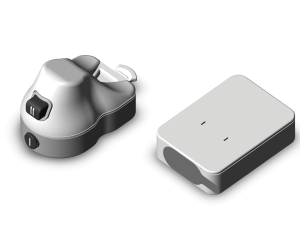Fenland Study Update – Winter 2022
Welcome to the Fenland Study Newsletter for study volunteers, in which you can read about the participant experience of the Fenland COVID-19 Study.
It is also an opportunity to highlight the wider work of the MRC Epidemiology Unit at the University of Cambridge. In recent months, we’ve published important papers on topics as diverse as the role of genetics in regulating the relationship between nutritional status and growth and development, what changes our risk of diabetes, the state of our food system, and levels of cycling frequency in different countries around the world.
You can read more about this research and other highlights from the last year in the latest edition of epigram, the newsletter for the MRC Epidemiology Unit. You can also subscribe to receive future issues of epigram and other updates by email.
Data from the Fenland Study is a key component of many of the discoveries highlighted above, and we thank you for your on-going contribution and support in this important work.
Participants’ experiences of the Fenland COVID-19 Study

The Fenland COVID-19 Study was set up in response to the COVID-19 pandemic and the urgent need for accurate epidemiological data to understand how to reduce the impact of the pandemic and understand the impact of the government social restrictions on health behaviour.
Due to the restrictions in place at the time of the study, the use of remote measurement technology was essential. From the point of contacting participants, everything had to be done remotely including consenting into the study and completing questionnaires. The study included a novel blood collection device (OneDraw) that participants could use at home without the need for a trained healthcare worker to take the blood sample or the participant having to do their own finger-prick test. Those participants who decided to take part were also asked if they wished to take part in a sub-study where further information was collected using an app. This sub-study included making measurements with devices and the camera of the smartphone three times a week. A high proportion of participants completed these measurements every week across the 6-9 months of the study.
We wanted to explore participants’ experiences of the novel aspects of the Fenland Covid-19 study to inform future studies in the MRC Epidemiology Unit by conducting what is called a Qualitative Study.
We interviewed a range of people; those who took part in the app sub-study and those who didn’t take part in the app sub-study but did participate in the Fenland COVID-19 study. We wanted to know more about why people chose to take part, their initial experiences of using the app and how they found completing the measurements and entering them into the app. We were also interested in factors they felt helped them to continue in the study by entering measurements into the app.
Overall, participants found this technology easy to use and not burdensome, and on the whole found that taking part in this study was a positive experience. Many participants said that they found the app convenient and expressed interest in taking part in an app study again. There were some key learnings from this study for us which will help us in the future to maximise the ease of use and improve access for those less familiar with using apps. Also, how we have learnt more about how to use the app to provide more information to participants on the study and their own results.
As a result of this valuable feedback, we are developing our own purpose-built app for use in the next phase of the Fenland Study. We are working to make the app as accessible and user friendly as possible. When the study launches next year, we will be available to help people set up the app with instructions, a telephone helpline, online meeting appointments or if required, face-to-face appointments. The app is also a good way for us to send more regular feedback to you on how the study is progressing, to provide study results and give you more rapid feedback on your own measurements. For those who do not have a smartphone device or do not wish to use the app, we will be providing alternative electronic ways to complete the questionnaires and send feedback.
The clinic visit is an important part of taking part in the Fenland Study and we know how valuable participants find the feedback on the health measurements. This will not change in the next phase of Fenland, but we will be able to reduce the length of the clinic visit by enabling participants to complete measures, such as the questionnaires, in their homes.
The clinic visit will have similar measurements and tests to the previous phases of Fenland. If required, questionnaires can also be completed at the clinic visit as they were in the past. Watch this space for further updates on the Fenland Study Phase 3.
User engagement focus group
As we look to build an app to aid the third phase of the Fenland research study, we would like your input into what the app looks like and how easy you find it to use. We are working with a digital agency, and they will be conducting some testing throughout the development of the app. This might include:
- Questionnaires: completion of a short survey online
- 1-1 30-minute interviews: using a prototype version of the app, we will conduct short interviews online to get your thoughts on the app and see how you’re using it
- Group interviews: with a small group of other participants, we will have a discussion to share your thoughts on specific aspects of the app to get your feedback on how we might improve your experience with it
It is important to remember that with this kind of testing, we are testing the app and not you. There is no wrong or right answer, but it is important that you are honest and clear with your thoughts on it, as it helps us make sure that the app works how you need it to.
We are looking to recruit a cross section of the Fenland cohort that is representative of the cohort. Your participation in this testing would be greatly appreciated. If you would like to be involved in this, please email the Fenland Coordinators on fenlandcoordinators@mrc-epid.cam.ac.uk.
How can we contact you?
In future we plan to provide more regular newsletters and have more correspondence by email. Please let us know if your email address has changed or is about to change by filling in this secure form.
We wish you a Merry Christmas and a Happy New Year for 2023!
With kind regards,
The Fenland Study Team
How to contact us
Tel: 0800 085 6183 (Monday – Friday, 9:00am – 4:00pm)
Email: fenlandstudy@mrc-epid.cam.ac.uk
Address: MRC Epidemiology Unit. University of Cambridge School of Clinical Medicine
Box 285, Institute of Metabolic Science, Cambridge Biomedical Campus
Cambridge CB2 0QQ, United Kingdom
Privacy Notice: Download Fenland Study privacy notice (PDF).
If you no longer wish to receive these newsletter updates, please email us on the above email address. This will not prevent you from receiving any direct communication about your participation in the study.


 MRC Epidemiology Unit
MRC Epidemiology Unit